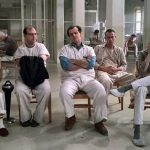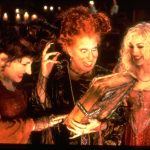Fear the Walking Dead (Season 1)

“Fear the Walking Dead,” a prequel to the immensely popular series “The Walking Dead,” premiered its first season in August 2015. Created by Robert Kirkman and Dave Erickson, the show offers a fresh perspective on the zombie apocalypse genre by exploring the initial outbreak and its impact on a family in Los Angeles. The first season of “Fear the Walking Dead” introduces viewers to a new cast of characters and provides a narrative that bridges the gap between the onset of the apocalypse and the more established world of its predecessor. The season is notable for its attempt to explore the early stages of the apocalypse and the psychological and societal changes that accompany such a catastrophic event.
Season 1 of “Fear the Walking Dead” is set in Los Angeles, beginning in the early days of the zombie outbreak. The narrative centers on the Clark family, which includes high school teacher Madison Clark (Kim Dickens), her fiancé Travis Manawa (Cliff Curtis), and their respective children, Alicia Clark (Alycia Debnam-Carey) and Chris Manawa (Lorenzo James Henrie). As the story unfolds, the Clark family faces increasing challenges as society collapses around them.
The season opens with Madison and Travis trying to navigate the complexities of their blended family while dealing with escalating social unrest and strange occurrences around the city. The initial episodes depict a gradual unraveling of normalcy, marked by bizarre incidents and increasingly erratic behavior among the people around them. The slow build-up of tension allows viewers to witness the early stages of the apocalypse from a more grounded perspective.
As the outbreak intensifies, the narrative shifts focus to the family’s efforts to understand and survive the unfolding crisis. The situation becomes increasingly dire as the government imposes martial law, leading to further breakdowns in social order. The family’s journey takes them from their homes to a military quarantine zone, and eventually to a desperate escape from Los Angeles. Each episode builds upon the previous one, with escalating stakes and deepening character conflicts, culminating in a dramatic and emotionally charged finale.
The first season of “Fear the Walking Dead” introduces several key characters, each of whom brings their own perspectives and challenges to the story.
Madison Clark (Kim Dickens): Kim Dickens’s portrayal of Madison Clark is central to the show’s emotional core. Madison is a dedicated high school teacher and a mother whose protective instincts drive her actions throughout the season. Dickens delivers a performance that balances vulnerability with strength, capturing Madison’s transformation from a concerned parent to a determined survivor. Her character’s evolution reflects the broader themes of adaptation and resilience in the face of catastrophe.
Travis Manawa (Cliff Curtis): Cliff Curtis plays Travis Manawa, a high school guidance counselor and Madison’s fiancé. Travis’s character serves as a counterpoint to Madison’s more pragmatic approach, offering a perspective of moral complexity and internal conflict. Curtis’s performance highlights Travis’s struggle to reconcile his ideals with the harsh realities of the apocalypse, contributing to the show’s exploration of ethical dilemmas and personal growth.
Alicia Clark (Alycia Debnam-Carey): Alycia Debnam-Carey’s portrayal of Alicia Clark, Madison’s teenage daughter, adds a layer of youthful energy and perspective to the series. Alicia’s character navigates the challenges of adolescence amid the apocalypse, and her journey reflects the broader impact of the crisis on young people. Debnam-Carey delivers a performance that captures Alicia’s transformation from a somewhat self-centered teenager to a capable and resilient survivor.
Chris Manawa (Lorenzo James Henrie): Lorenzo James Henrie plays Chris Manawa, Travis’s son from a previous relationship. Chris’s character experiences significant emotional turmoil as he grapples with the collapse of his family’s world and his strained relationship with his father. Henrie’s performance adds depth to Chris’s struggle, highlighting the personal and familial conflicts that arise in the face of disaster.

The direction of “Fear the Walking Dead” in its first season is characterized by its focus on realism and character-driven storytelling. Directed by a range of filmmakers, including Adam Davidson, Michael E. Satrazemis, and others, the season adopts a grounded approach to the zombie genre, emphasizing the psychological and emotional aspects of the outbreak.
The visual style of the show reflects its urban setting, with a focus on the contrasts between the familiar and the increasingly nightmarish elements of the world. The cinematography captures the gradual decay of the cityscape and the growing sense of unease among the characters. The use of color, lighting, and camera angles contributes to the show’s atmosphere, creating a sense of foreboding and tension that builds throughout the season.

“Fear the Walking Dead” explores several themes that resonate with viewers and enrich the narrative:
Adaptation and Survival: A central theme of the season is the characters’ adaptation to the new realities of their world. The show examines the ways in which individuals and families must adjust their behaviors, values, and strategies in response to the collapse of societal norms. The struggle for survival becomes a defining aspect of the characters’ journeys, highlighting the resilience and resourcefulness required to navigate an apocalyptic world.
Family and Relationships: The season places a strong emphasis on family dynamics and relationships. The Clark family’s interactions, conflicts, and growth are central to the story, reflecting the importance of familial bonds in times of crisis. The show explores the impact of the apocalypse on personal relationships and the ways in which individuals rely on each other for support and survival.
Social Breakdown and Authority: “Fear the Walking Dead” delves into the breakdown of social order and the erosion of authority. The depiction of martial law, government control, and the subsequent collapse of institutional structures highlights the fragility of societal systems. The show examines the power dynamics and moral challenges that emerge in the absence of established authority.
Human Nature and Morality: The series raises questions about human nature and morality in the face of extreme circumstances. The characters’ actions and decisions are often driven by a mix of self-preservation, ethical considerations, and personal values. The show explores the moral ambiguities that arise when individuals are forced to make difficult choices for the sake of survival.

The first season of “Fear the Walking Dead” arrives during a period of heightened interest in post-apocalyptic and zombie-themed media. As a prequel to “The Walking Dead,” the show benefits from the established popularity of its predecessor while also offering a fresh perspective on the genre. The series provides viewers with a deeper understanding of the early stages of the apocalypse, enriching the broader narrative of the “Walking Dead” universe.
The show’s exploration of societal collapse and personal survival reflects contemporary cultural concerns about instability and crisis. The themes of adaptation and resilience resonate with viewers facing real-world challenges, making the series both timely and relevant.

Season 1 of “Fear the Walking Dead” is a compelling and thought-provoking addition to the zombie genre, offering a nuanced exploration of the early stages of an apocalypse. Through its character-driven narrative, realistic depiction of societal breakdown, and exploration of themes such as survival, family, and morality, the series provides a fresh perspective on the world of “The Walking Dead.” The show’s focus on the psychological and emotional impact of the crisis adds depth to its storytelling, making it a valuable and engaging entry in the genre. As a prequel, “Fear the Walking Dead” enriches the broader “Walking Dead” universe while standing on its own as a powerful and evocative series.











